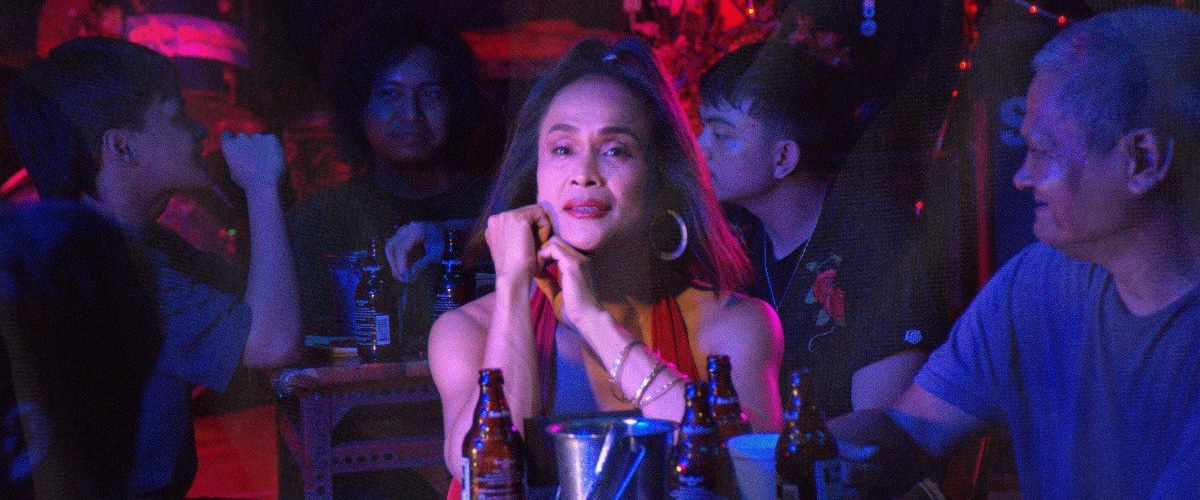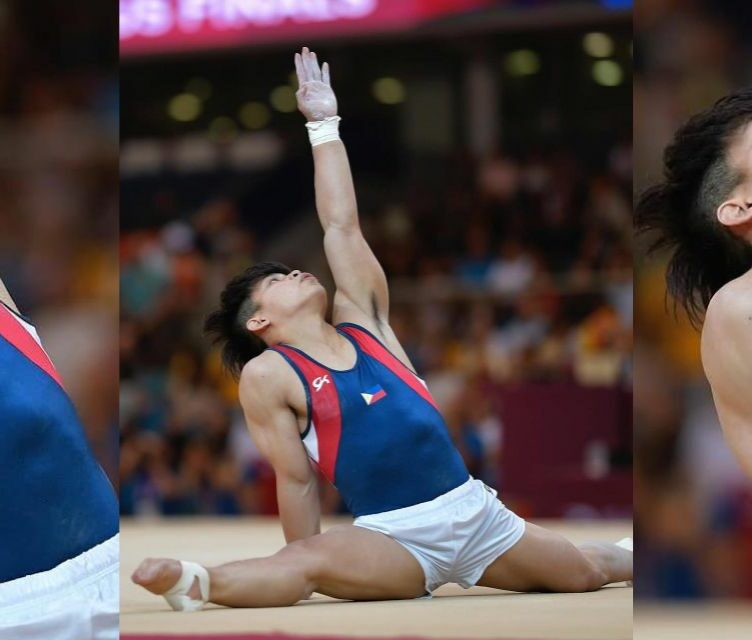THERE was a time when grain, blur, overexposure, and shaky shots weren’t style— they were survival.
The early 2000s Filipino independent cinema was born from constraint. They were filmed through cheap cameras and borrowed lights. Their stories were told with what little the producers had, because in this era, what mattered most was that you told them at all.
But in Ronnie Ramos’ graduating film, that rawness returns— not out of lack, but as a deliberate act of remembering. Of honoring. Of reclaiming a language that once spoke for the overlooked.
‘Repablikan’: A Queer Coming-of-Age Film
The coming-of-age genre has long enchanted storytellers—not only in cinema, but in music, literature, and art.
It is a tender threshold, where the glow of innocence fades, identity begins to bloom, and the dreamlike wonder of youth brushes up against the sharp edges of reality. It captures the ache and awe of becoming.
But for decades, just like in other forms of media, this rite of passage was almost always filtered through a heteronormative gaze.
Desire and self-discovery are often scripted in straight lines, leaving queer stories as a subtext, if they were told at all.
Yet in recent years, as Gen Z steps both in front of the camera and behind it, the queer lens has begun to reclaim the genre. Coming-of-age stories like Netflix’s Heartstopper and the Philippines’ 2021 web series Gameboys breathe new life into the narrative—this time, through eyes that have long been left at the margins.
Queer stories of growing up are no longer confined to tragedy or mere tokenism. Instead, they unfold with the full spectrum of complexity that great stories demand. This resurgence isn’t just about diversity—it’s a celebration of what it truly means to grow up queer, with all its joy, struggle, and nuance.
Repablikan by Ronnie Ramos, a graduating film from the University of the Philippines Film Institute (UPFI), is one such work.
But unlike the polished narratives of mainstream cinema, it intentionally returns to the roots of independent filmmaking—not out of constraint, but as a conscious choice. Its raw, seemingly unpolished aesthetic mirrors the roughness of the story it seeks to tell.
At its core is thirteen-year-old Gino, whose admiration for a trans woman named Giliw sparks a profound journey of self-discovery, desire, and identity.
Set against the nostalgic yet socially charged backdrop of the 2010s, Repablikan captures the struggles and aspirations of a generation, resonating deeply with those who grew up in a similar era.
This film blends coming-of-age and magic realism—two genres often paired together—creating a unique narrative that moves beyond the conventions of both.
A glimpse into the director’s vision
Repablikan is shot on a Sony HDR-FX1 camera— an older technology that utilized the HDV format, a predecessor to the modern digital cameras. It employed lighting setups like Redheads and other old school equipment.
This setup serves as Ramos’ love letter to early independent Filipino cinema—and perhaps, a quiet revolt against the glossy, picture-perfect style of commercial cinema.
“When I entered film school, I was taught that success looked like polished frames and high-budget aesthetics. But that perfection felt alien to me,” said the director.
“It didn’t tell the stories I carried—stories of messy, flawed people like me, who are beautiful precisely because of their imperfections. I realized I wanted to make a film that could reclaim that rawness, that celebrated what society often rejected,” he added.
Ramos cited several films that, you could say, served as an inspiration of his approach to Repablikan.
“I grew up on films like Ang Pagdadalaga ni Maximo Oliveros, Endo, and Tribu, and they all had this texture that felt so real—sweaty streets, imperfect framing, raw performances. That’s the kind of cinema that first made me believe in the power of filmmaking,” he said.
“With Repablikan, I wanted to go back to that kind of honesty. We didn’t use fancy cameras or modern lighting; we worked with what early indie filmmakers had—MiniDV, Redheads, and a whole lot of improvisation.”
But with this approach came a challenge—letting go of perfection. When perfection becomes the industry norm, embracing rawness becomes a struggle.
It’s easy to fall into the trap of seeking flawless images and seamless storytelling, but to achieve the authenticity that Repablikan strives for, one has to deliberately reject that polished ideal.
“Nowadays, we’re so used to pristine, high-definition images that it’s difficult to embrace the messiness of older technology. There were moments when the footage looked too grainy or when the lighting was uneven, and we had to remind ourselves that those ‘imperfections’ were part of the charm,” shared Ramos.
This meant they had to be patient with the process, especially since they used MiniDV, which couldn’t process footage as quickly as digital cameras. It required more effort and time to review the shots, making each decision more deliberate and intentional.
But this approach isn’t just about style; it also opens doors to new possibilities for the current landscape of Philippine cinema.
By embracing imperfection and rawness, Repablikan challenges the dominance of commercialized, polished filmmaking, offering a fresh perspective that values authenticity over perfection.
“I think Repablikan is a throwback,” said Ramos, “but it’s also a challenge. It asks: Can we still make films like this? Do we still have room for rough, imperfect, deeply personal stories in an industry that’s increasingly polished and commercialized? I hope it sparks a conversation about the kind of cinema we want to nurture.”
A Movie for All
But beyond the technicalities, what Repablikan strives for is the same goal every work of art aims to achieve—to touch the hearts of its audience.
This emotional core is what inspired Ramos to create the film in the first place. It’s not just about telling a story; it’s about telling his story and the stories of others who share his experience.
“Repablikan is very personal to me because it captures the awkward, exhilarating, and sometimes painful moments of growing up. I remember being young and looking up to people who defied gender norms—people who carried themselves with a kind of confidence that I didn’t yet understand but deeply admired. I wanted to bottle that feeling—the mix of curiosity, admiration, and longing—and put it on screen.
“The character of Giliw is inspired by real people I encountered, and Gino’s journey is a reflection of the questions I asked myself at that age.”
The film’s narrative isn’t just a revolt against commercial cinema or a personal reflection of Ramos’ experience. It is also a confrontation of how Filipino culture navigates masculinity—especially the hegemonic, traditional ideals that dominate society.
“Growing up queer in the province meant constantly navigating expectations of masculinity and identity. I wanted to explore how young people negotiate these things—how admiration, curiosity, and confusion often intertwine in unexpected ways. It’s a film about desire, yes, but also about learning to see yourself through others,” said Ramos.
Ramos hopes the film resonates with audiences—queer or not—because at its core, coming-of-age is a universally shared experience.
While our journeys may differ, the ache of growing pains, the thrill of self-discovery, and the search for identity are emotions we all recognize.
“I hope they see themselves in Gino’s journey. We’ve all had that moment of looking at someone and realizing something about ourselves—something exciting, something scary,” he said.
“Repablikan is about those small but powerful moments that shape who we become. And beyond that, I hope it reminds people of the beauty of imperfections, both in life and in cinema.”
How useful was this post?
Click on a star to rate it!
Average rating 0 / 5. Vote count: 0
No votes so far! Be the first to rate this post.
We are sorry that this post was not useful for you!
Let us improve this post!
Tell us how we can improve this post?








